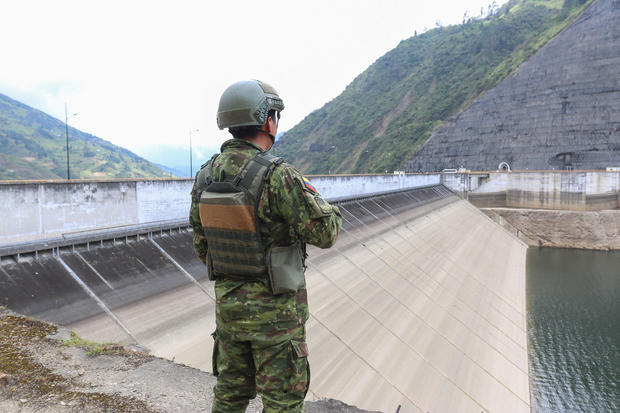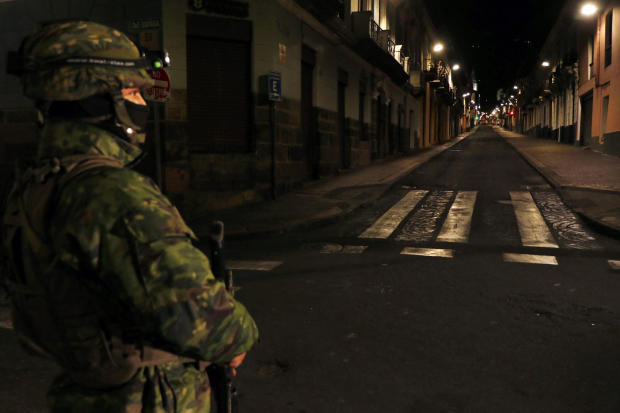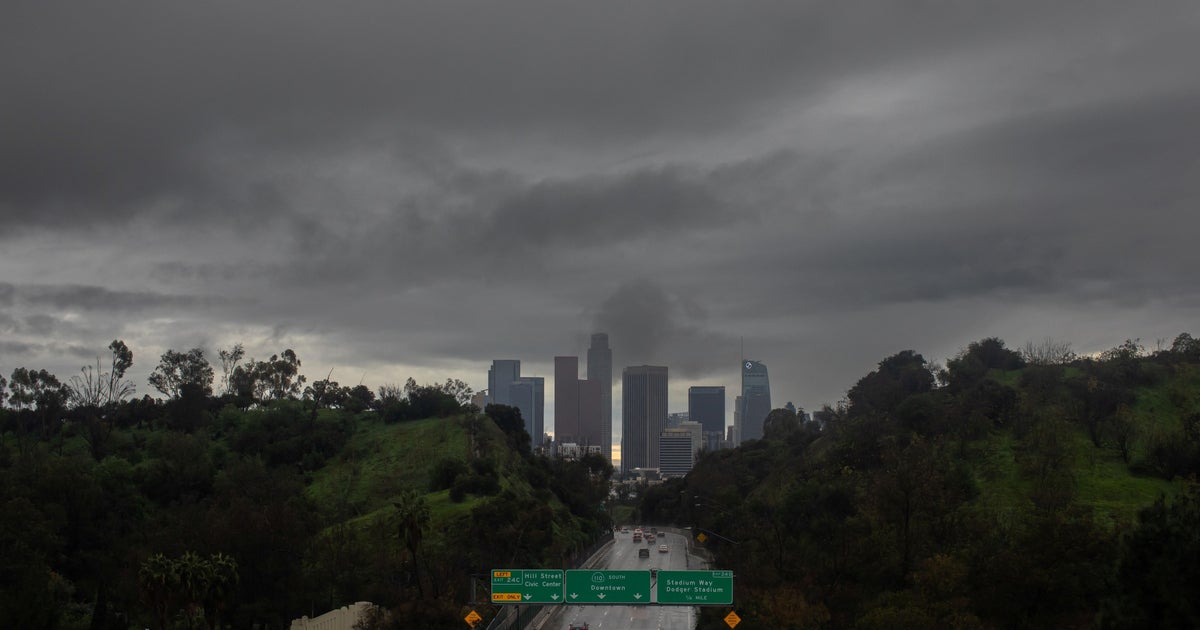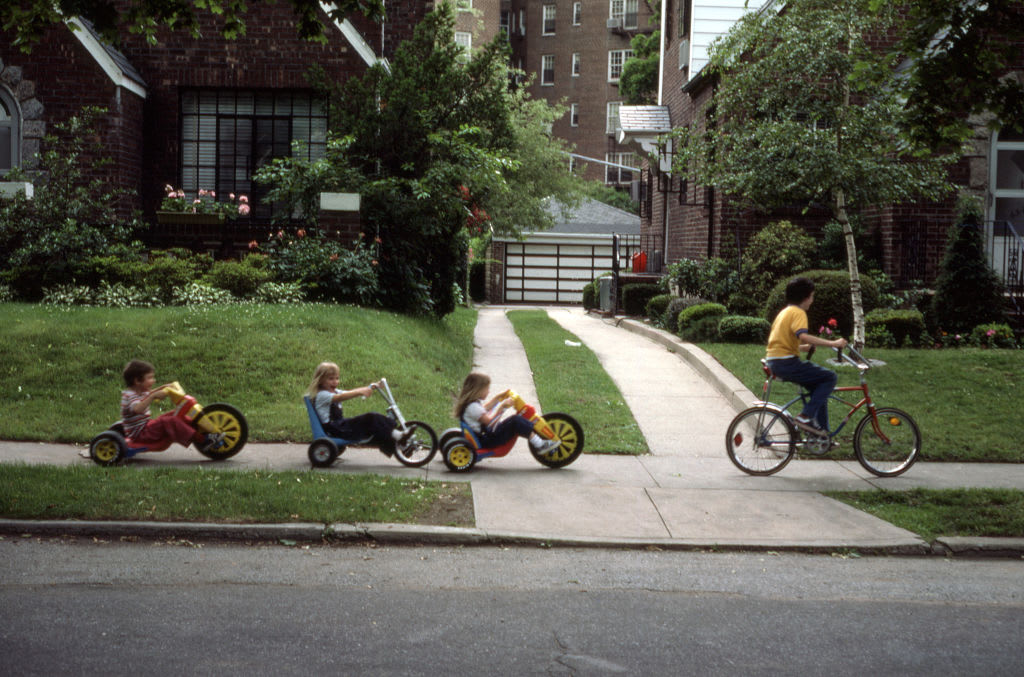Ecuador imposing overnight blackouts as drought saps hydroelectric power capacity
Ecuador's government was to begin imposing nationwide nighttime blackouts Monday evening in a bid to conserve energy. The move has been forced by widespread drought conditions depriving Ecuador of vital hydroelectricity capacity.
The office of Ecuador's President Daniel Noboa announced the blackouts in a message posted on social media last week, saying there would be daily eight-hour power cuts from Monday until Thursday, lasting from 10 p.m. until 6 a.m.
The statement said the measure was due to "the worst drought in the last 61 years and in order to responsibly manage the control of our electrical system."
Ecuador gets about 77% of its electricity from hydroelectric generation, according to local news outlets.
The presidency said the overnight blackout time window was chosen to reduce the impact on daytime activities and workdays. Public sector workers were being required to work remotely on Thursday and Friday where possible in an additional bid to reduce demand for energy this week.
It remained unclear whether the government would announce further cuts beyond Thursday, and much of the nation saw its electricity switched off even earlier, as the government unexpectedly announced a single, nine-hour blackout for 12 provinces on Sunday.
The government had already taken electricity offline Wednesday night into Thursday morning for what it said was preventative maintenance work on the national power grid. A curfew was issued for six provinces and one canton as 15 substations were inspected by 115 maintenance teams, according to Noboa's office.
National security officials said 28 suspects with links to organized crime were arrested during the curfew, amid an increased deployment of officers.
The U.S. Embassy in Ecuador issued an alert about the blackouts, warning U.S. nationals in the country to limit their movements and noting a heavy military and police presence that could include checkpoints on roads. The alert also noted that the international airports in Quito and Guayaquil would remain operational during the blackouts.
Ecuador is no stranger to electricity problems. The country has been facing an energy crisis since last year. Most recently, in June, cities across Ecuador faced blackouts due to the failure of an energy transmission line.
Noboa declared a state of emergency in the electricity sector in April and asked the country's energy minister to step down. He suggested at the time that sabotage and corruption could be to blame for the country's power issues and said he would personally lead a new committee tasked with finding a solution to the crisis.
Noboa's government has implemented various strategies to try to mitigate the impact of the energy shortages, including power rationing and deploying military forces to support operations at a major hydroelectric dam.
The government has also commissioned a Turkish power generation barge to supply additional electricity to the national grid. The ship began generating power last week.





